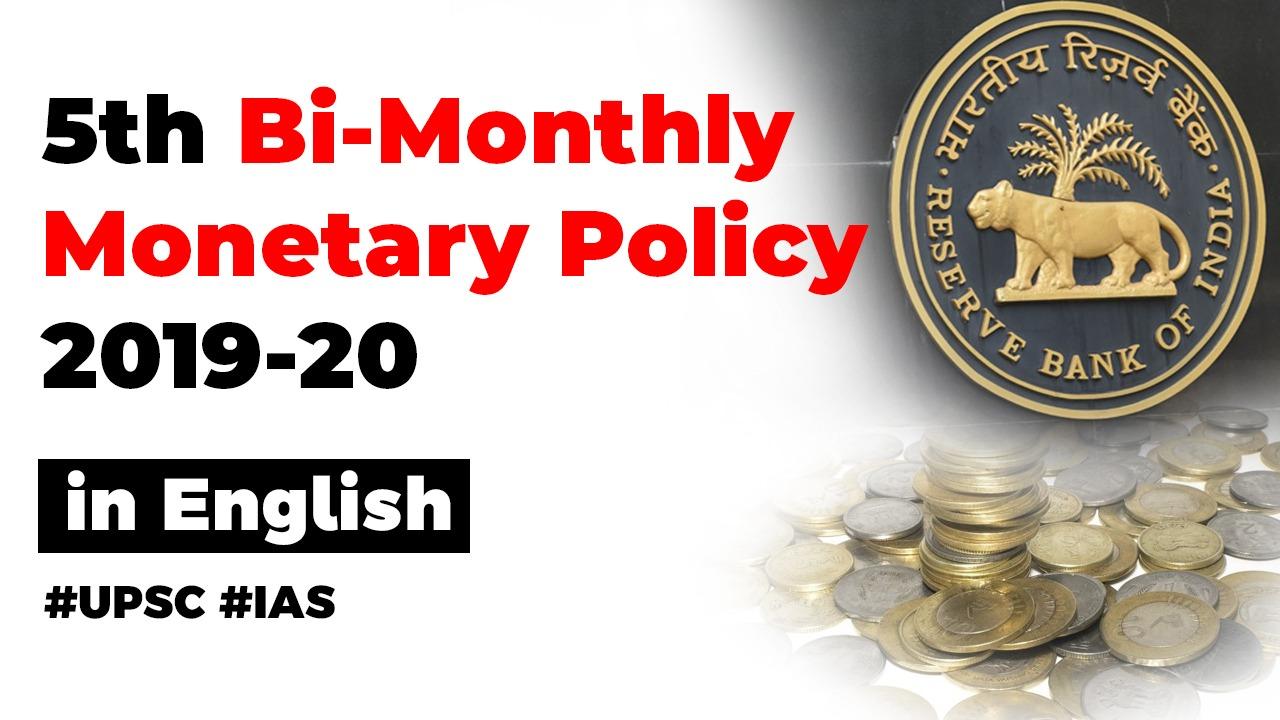Table of Contents
REPO RATE
- Repo rate also known as the benchmark interest rate is the rate at which the RBI lends money to the banks for a short term.
- When the repo rate decreases, borrowing from RBI becomes cheaper.
- After the rate cut, EMIs on home loans and other loans will come down significantly.
- Reverse repo rate is 25 bps lower than the Repo Rate.
IN NEWS
- The Reserve Bank of India (RBI) left the repo rate unchanged in its December policy review while maintaining accommodative stance.
- RBI expects past monetary easing and measures taken by the government to feed into the real economy gradually.



RELATION B/W RATES & GROWTH
- When the repo rate is decreased, it makes the borrowing cheaper from the banks.
- Hence more investment and expenditure.
- Thus more output and higher growth.
NEGATIVE CONSEQUENCE OF LOWER RATES
- Since lower rates leads to more borrowings, it increases the overall demand of goods and services.
- In economic theory, when there is higher demand, the prices of goods and services
- Thus higher inflation.


KEY TAKEAWAYS FROM THE POLICY
- Real GDP growth for 2019-20 is revised downwards from 6.1% in the October policy to 5%.

OPPORTUNITY & RISK
- While improved monetary transmission and a quick resolution of global trade tensions are possible upsides to growth projections.
- Delay in revival of domestic demand, a further slowdown in global economic activity and geo-political tensions are downside risks.
INFLATION
- The RBI has increased the CPI inflation projection to 5.1-4.7% for the second half of the current fiscal year.
- 4.0-3.8% for the first half of the next fiscal year 2020-21.

- Steep telecom tariff hike can have some impact on core inflation.
- We have taken measures to ensure that credit flow increases from banks to NBFCs.
- RBI governor on fears of job cuts: “There is no such fear”.
- The RBI said it is against any kind of private digital currency as currency is a soveriegn function.
UPCOMING UNION BUDGET
- RBI Governor Shaktikanta Das said the forthcoming union budget will provide better insight into further measures to be undertaken by the Government and their impact on growth.
CONCLUSION
- 3 reasons why MPC has not reduced the policy rates even though there is a slowdown-
- Retail inflation is going upwards.
- It has already reduced 135 basis points in this year.
- Wait & watch mode on Union Budget.
- Capital is one of the three main factors of production, which are
- critical to the growth of a commercial entity, the other two being land and labour.
- But capital is only a necessary, not sufficient, condition.
























 WhatsApp
WhatsApp